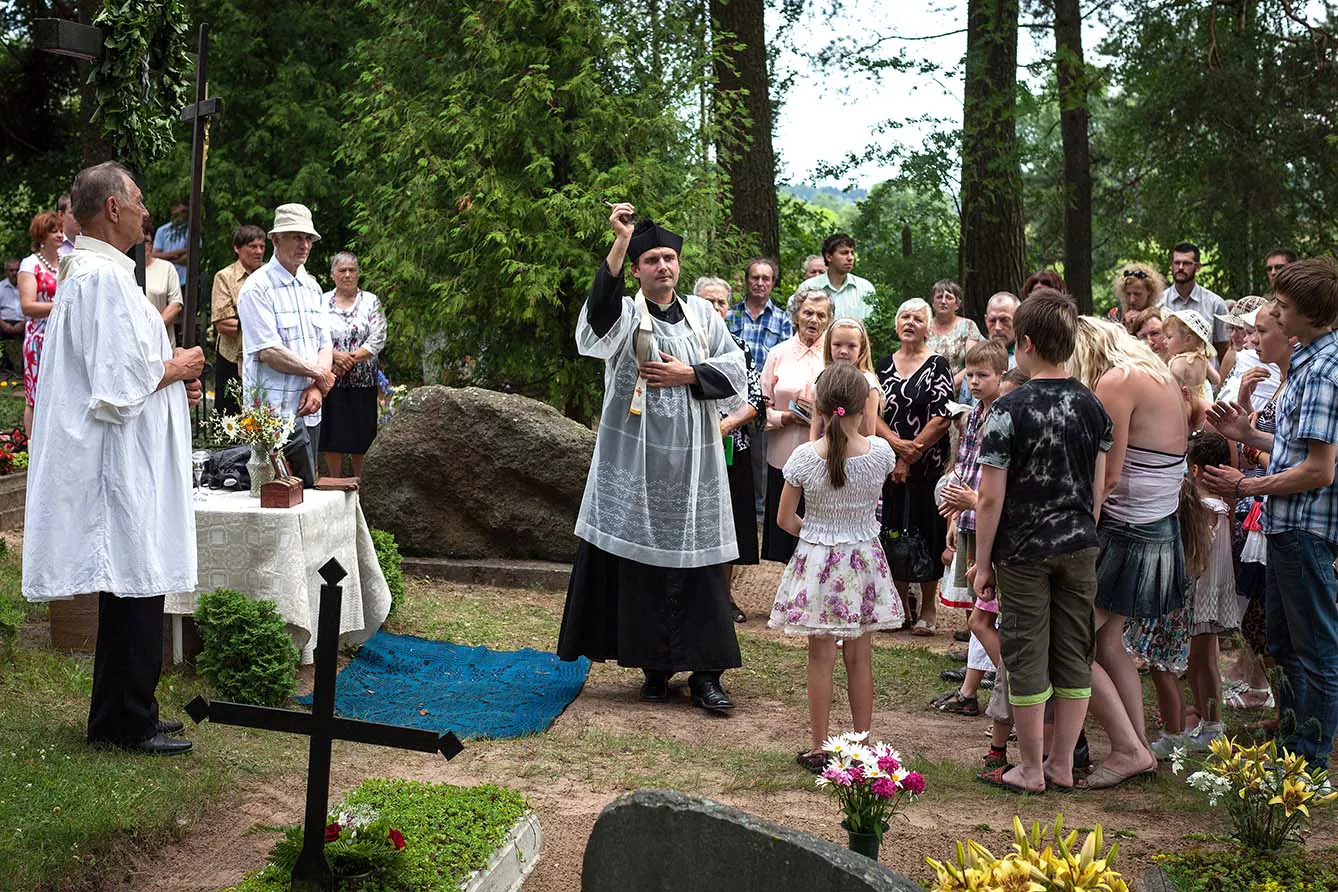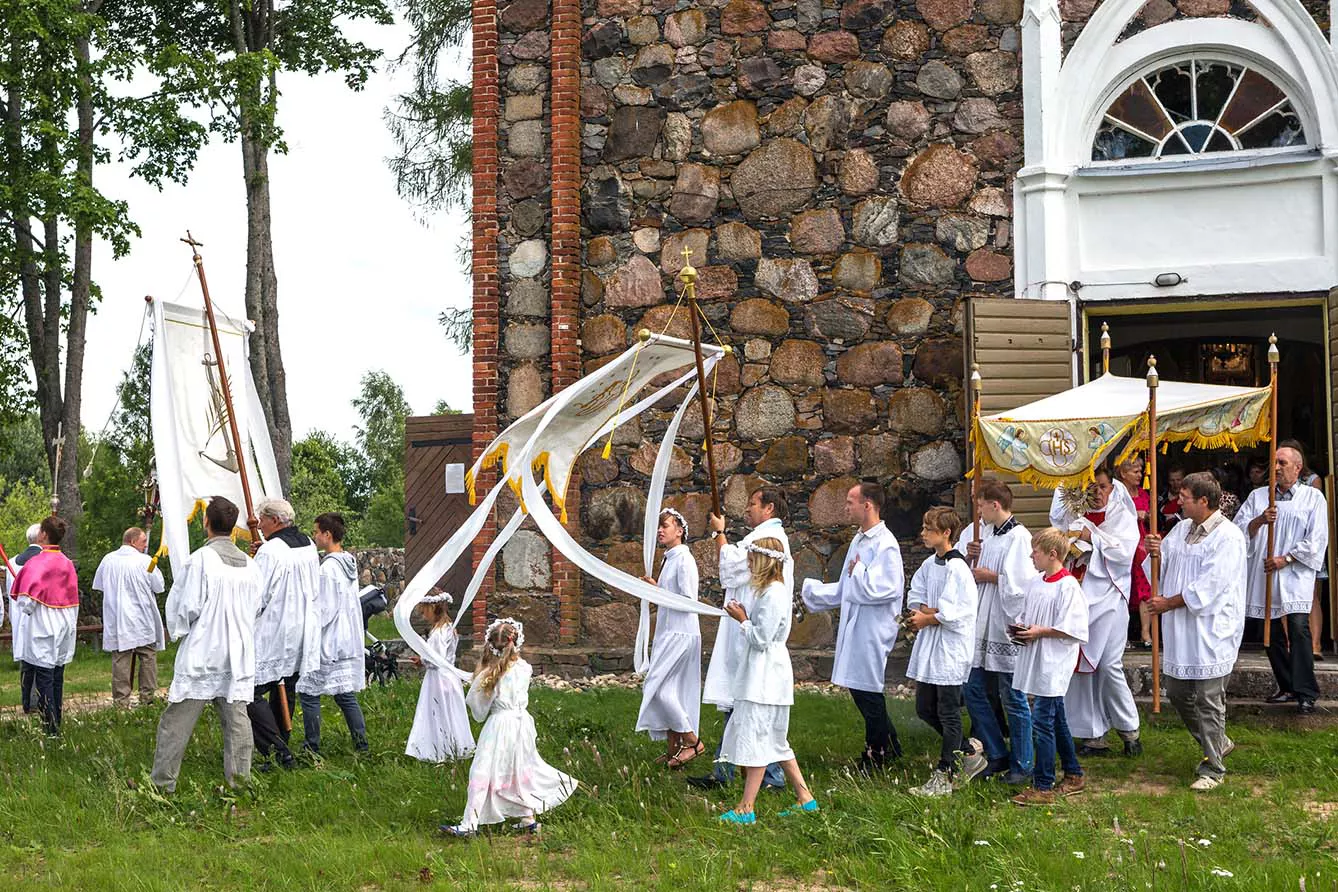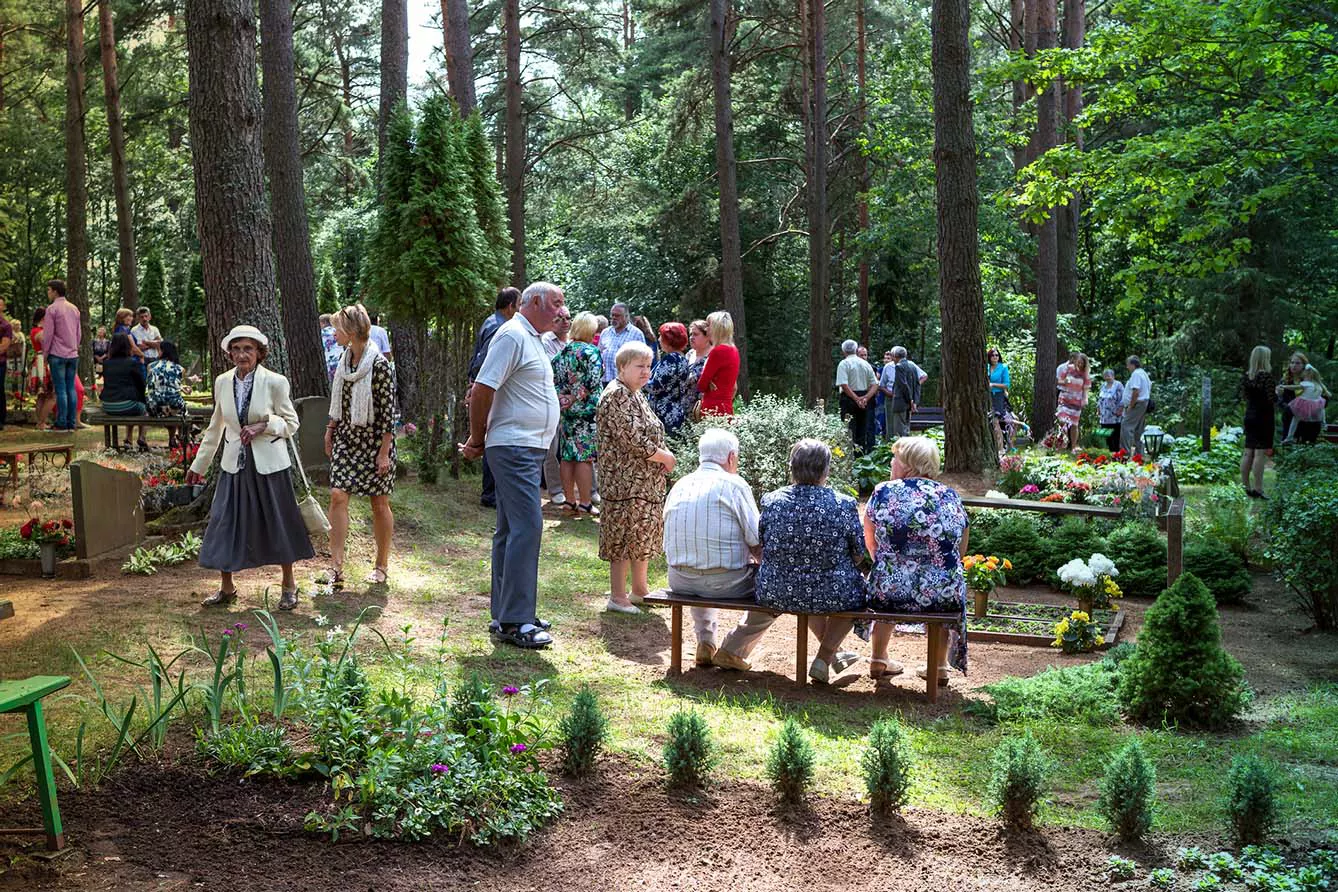Some may mark it as a somber occasion, but the idea of the Cemetery Festival (Kapusvētki) in Latvia, usually held sometime between May to September with each parish establishing its own date, is more about celebrating life. As you might expect from a celebration, people prepare by sprucing up the house and themselves, cooking a feast, and picking or buying flowers. But, before communing at their respective tables, relatives, friends, and the wider community meet at the cemetery gates. First, one pays respects to the departed.
Kapusvētki: The climax of a deep-rooted cemetery culture
In Latvia, cemeteries resemble gardens or parks in terms of landscaping, scale, and grandeur. Loved ones tend to graves, taking care of weeding, planting, discarding wilted flowers, refreshing the sand cover, and raking. Locals take looking after one’s family gravesites very seriously. So much so that cemetery culture is one of 108 elements forming the national Cultural Canon. It is a matter of honor and duty, and the festival is a culmination of sorts.
The caring act and ritual process invites reflection, forming a collective understanding of death and coming to terms with the loss. While each affords the Cemetery Festival its own meaning, fundamentally, it gives reason to come together from near and far, maintaining family ties.
At one point in the day, the cemetery hosts a service. Often, a musician or several accompany the minister. Afterward, participants may return to the family grave to bid farewell and carry out a few closing activities like the symbolic raking away of footprints.
Depending on the family, the region, and the congregation, the celebratory meal takes place either at the cemetery, the family home, or nearby. The evening might continue with a joint outing. Today, cemetery festivals are often integrated into the program of village, town, or region fairs.


The Cemetery Festival in popular culture
Along with appearing in historical works, the Cemetery Festival is also present on the contemporary popular culture scene. Comedy rock band Pirmais kurss wrote and named a song after it. The lyrics shed light on the practical aspects of the day: “brought the benches up from the cellar, that’s where I seat my grandmama. This one’s a grand festival” (“beņķus no pagraba izvelku, omes uz viņiem sēdinu. Šitas labs festivāls”), “pockets full of candles, relatives flock from as far as Ramata” (“svecītes pilnas kabatas, radi klāt pat no Ramatas”).
Photographer Mārtiņš Grauds documented the event in photos, published in the bilingual book Kopā kapos/Cemetery Festival – Coming Together. And the New Riga Theatre (Jaunas Rīgas teātris) produced the play Cemetery Festival (Kapusvētki), which they even performed in Vienna. In the past, whole magazines informed and educated on cemetery culture – In Memoriam with articles such as “Top 10 shrubs for the grave” and “What to do if you are unable to take care of the family grave alone,” as well as a themed supplement to Garden World (Dārza pasaule).
In 2011, the festival acquired new meaning when it inspired the social campaign Oligarchs’ Cemetery Festival (Oligarhu kapusvētki). Several well-known figures and activists united to protest the influence of oligarchs on politics in Latvia. Protesters gathered in towns around the country singing, burning effigies, and carrying out symbolic “burials.”
Such is the life of a tradition. Like a living, breathing organism, it stays true to its soul but evolves.







